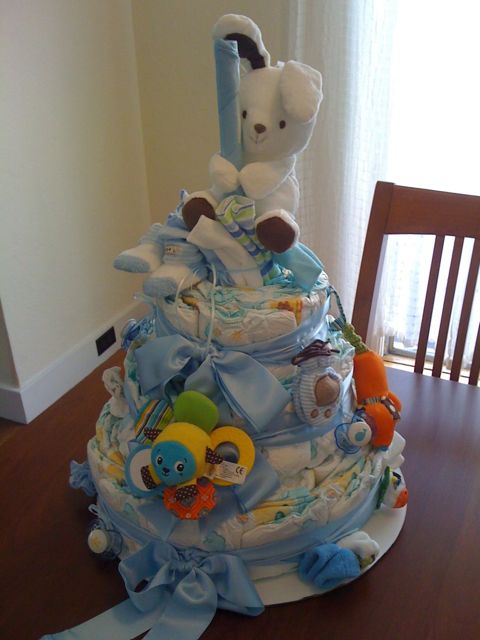We had a baby shower today, which was joyful and exhausting. The baby got a lot of cool new things (like this awesome diaper cake) and I got a newfound appreciation for the ability to suck liquid from a baby bottle. I also learned, for a short time, what life would be like with a lisp.
You see, we had a contest/game where we competed to see who could empty a baby bottle the fastest. It took me about twelve and a half minutes to empty half the bottle (considerably behind everyone else, some of whom cheated but others who were simply better babies than I was). But the worst part was that after all that hard work, my tongue and jaw muscles had somehow tired themselves out in a way that I had an unavoidable lisp. Try as I might, I could not pronounce an S sound without considerable work and difficulty.
While it was humorous because I knew that I would regain control of my mouth soon (and the lisp eventually wore itself out in the span of 10 minutes or so), it gave me some insight into what life must be like for people who can’t get rid of their lisp that easily. It was so frustrating to know what something should sound like yet not be able to pronounce it correctly.
It also made me anxious to, well, have this baby already. I’m not saying that I want it to arrive early, but now that we’re even more surrounded by baby objects, it’s hard to not imagine an actual baby sleeping in our crib or wearing his onesies or barfing on all the receiving blankets we have now.
